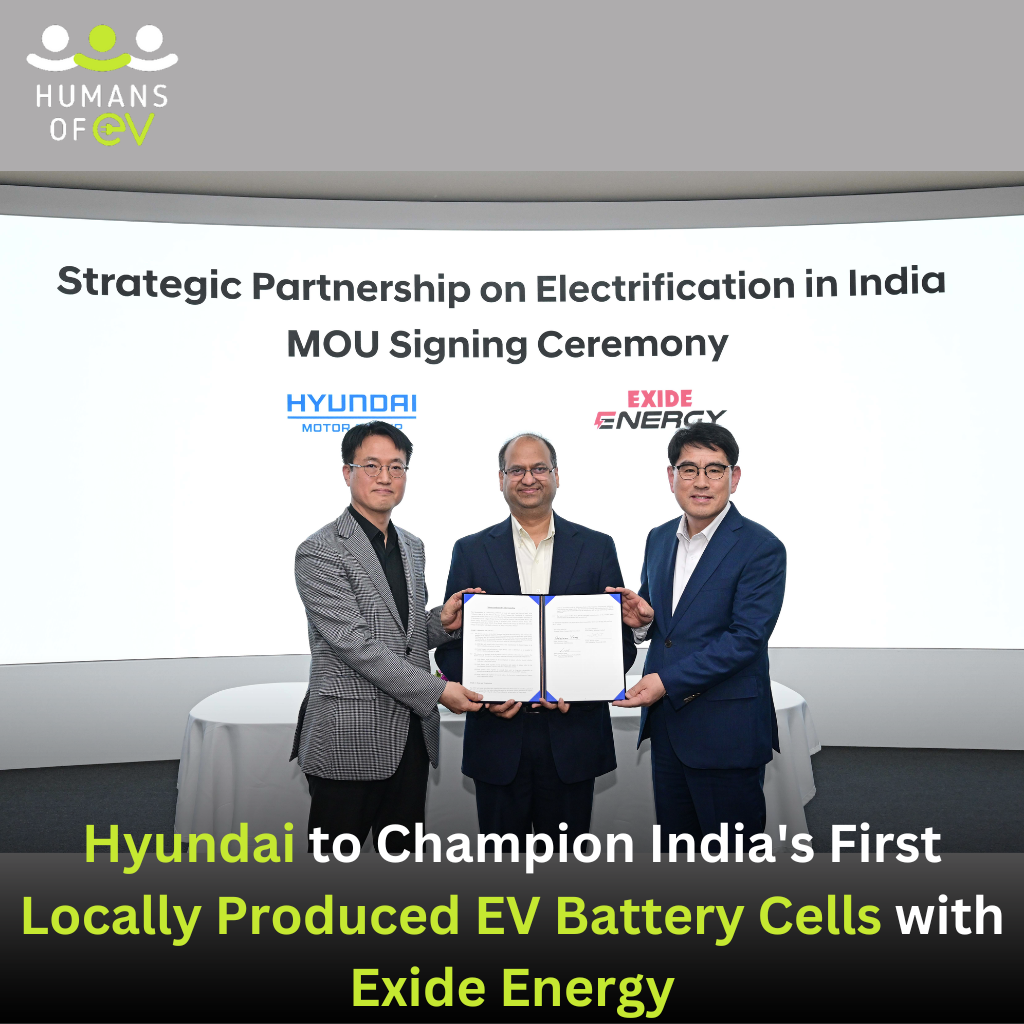
December 20, 2024 | New Delhi
Hyundai Motor India Ltd. (HMIL) has taken a significant step toward localizing EV battery production by signing a binding agreement with Exide Energy Solutions Ltd., a subsidiary of Exide Industries. This collaboration positions Hyundai as the first Indian carmaker to use locally produced lithium-iron-phosphate (LFP) battery cells in its electric vehicles, marking a milestone in India’s journey toward sustainable mobility.
Key Highlights of the Partnership
- Battery Localization:
- The partnership enables Hyundai to source LFP battery cells locally, reducing costs and boosting India’s EV manufacturing ecosystem.
- Advanced Battery Technology:
- The LFP cells offer more than 10,000 charging cycles, significantly surpassing the average 1,000–2,300 cycles provided by standard lithium-ion batteries.
- Support for Carbon-Neutral Goals:
- By localizing battery production, Hyundai contributes to India’s carbon neutrality ambitions while strengthening its competitive edge in the market.
Strategic Importance
Heui Won Yang, Head of Hyundai and Kia’s R&D Division, emphasized:
“India’s position as a key market for vehicle electrification necessitates localized manufacturing. This partnership with Exide Energy Solutions will give Hyundai Motor and Kia a competitive edge in the Indian market by equipping future EV models with locally produced batteries.”
This move aligns with Hyundai’s ongoing investments in India’s EV infrastructure and manufacturing processes, reflecting its commitment to the Make in India initiative.
Why It Matters
- Cost Competitiveness:
- Local sourcing of battery cells reduces costs, making Hyundai’s EVs more affordable for Indian consumers.
- Enhanced Battery Life:
- The use of advanced LFP technology ensures longer battery life and reliability, addressing key consumer concerns about EV durability.
- Boosting Domestic EV Ecosystem:
- This collaboration supports India’s EV ecosystem by encouraging local manufacturing and reducing dependency on imports.


